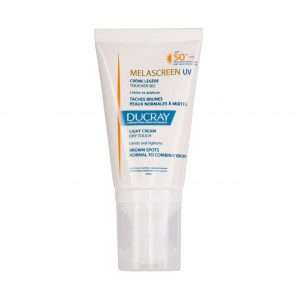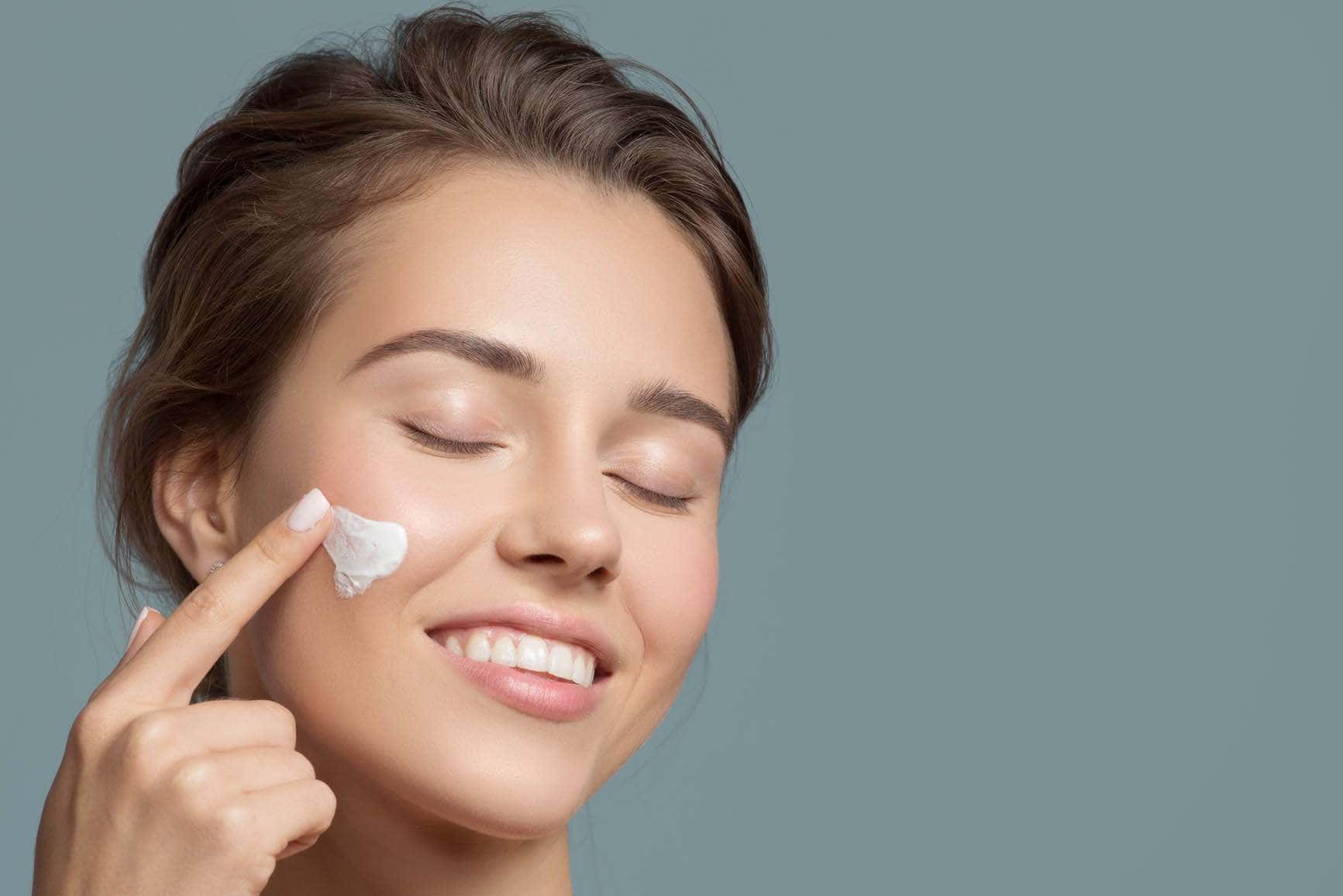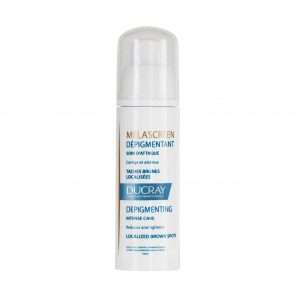
When it comes to achieving the perfect complexion you’ve been dreaming of, nothing is more daunting than unwanted spots, whether it’s a single dark spot or widespread patches of discoloration. Hyperpigmentation is the umbrella term for these often unwanted skin changes. Whether you want to treat existing spots or avoid developing new ones, check out this article from The Dermo Lab in collaboration with the dermatologist and cosmetologist Dr. Heba Alhdad. If you are struggling with skin issues, this article is for you, as it focuses on the best cream for pigmentation. All you have to do now is figure out the best option for you. So, let’s get started!
Why does pigmentation occur?
Pigmentation means coloration. Skin pigmentation disorders affect the color of your skin. Your skin color comes from a pigment called melanin. And according to Dr. Heba Alhdad, when melanin cells are disturbed, pigmentation happens.
There are many reasons why hyperpigmentation can occur.
1- UV Radiation
Exposure to the sun triggers the production of melanin, leading to the appearance of a tan, which helps protect the skin from further sun damage. However, excessive sun exposure can exacerbate the situation and lead to the appearance of any type of darker, more prominent hyperpigmentation.
2- Aging
With age, the number of melanocytes in the skin decreases, but those that remain increase in size. The epidermis thins, making the skin appear thinner, more fragile, and more easily traumatized.
3- Hormones
Hormonal changes are the main cause of hyperpigmentation. It is particularly common in women and is thought to occur when female sex hormones (estrogen and progesterone) boost the overproduction of melanin during sun exposure.
4- Post-inflammatory hyperpigmentation (PIH)
Anything that traumatizes the skin and causes inflammation can trigger hyperpigmentation. This is because inflammation directly stimulates melanin production. This is sometimes referred to as post-inflammatory erythema (PIE).
5- Medical conditions
More generalized hyperpigmentation can occur as a result of certain diseases such as Addison’s disease.
6- Medications
Many types of medications can cause hyperpigmentation. These include painkillers, antibiotics, anticoagulants, and antiretrovirals.
How to get rid of pigmentation?
According to Dr. Heba Alhdad, skin problems such as pigmentation can be treated by multiple methods.
Let’s look at them individually:
Avoiding sun exposure, which is one of the most common causes of hyperpigmentation, is the easiest option. People with pigmentation should especially avoid sun exposure between 11 am and 4 pm.
Here are some common ways to combat sun exposure:
- Wear a wide-brimmed sun hat
- Seek shade
- Wear protective clothing
- Use a broad-spectrum sunscreen with a sun protection factor (SPF) of at least 30.
We would like to share with you the following sunscreen, which offers effective photoprotection against dark spots and photoaging.
Ducray Melascreen UV Light Cream SPF50+
2- Cosmetic procedures
You can always visit a dermatologist for clinically approved therapies, such as laser treatment, strong pulse light therapy, chemical peels, and other procedures.
Dr. Heba Alhdad states that laser treatment can help eliminate pigmentation in some cases. So how does laser pigmentation removal work? The laser aims only at the pigmented lesion in the skin which absorbs the light, without damaging the surrounding skin. It safely and effectively reduces the appearance of freckles, pigmentation, and age spots.
Intense Pulsed Light Therapy (IPL) is another way to improve the color and texture of your skin. It can repair some of the visible damage caused by sun exposure, called photoaging. You may notice it most on your face, neck, hands, or chest.
A chemical peel uses acids at higher concentrations to treat the desired area of skin. They minimize the appearance of hyperpigmentation by removing the epidermis.
3- Hyperpigmentation creams
These lotions are safe and have no side effects. Hyperpigmentation creams are the best option if you don’t mind waiting a little longer for results. The question is, which cream is best for pigmentation? Read on!
What is the best cream for pigmentation?
To make sure you choose the best and most effective product for removing brown spots, consider the right ingredients. Here are the best ingredients in skin care products if you want to lighten an uneven skin tone.
- Vitamin C
Vitamin C may reduce hyperpigmentation by blocking melanin production. It blocks tyrosinase, an enzyme your body uses to produce melanin, making it a natural skin lightener. Vitamin C is also a powerful antioxidant, which means it protects skin cells against further damage from the sun or external pollutants.
- Kojic acid
Like vitamin C, kojic acid works by inhibiting tyrosinase enzymes. It also protects the skin from environmental toxins as it is rich in antioxidants. Kojic acid comes from natural sources, but keep in mind that it can cause side effects such as swelling and redness.
- Retinol
Retinol is a form of vitamin A and the most commonly used ingredient to treat hyperpigmentation. Retinol is very effective in treating hyperpigmentation by promoting cell turnover and bringing healthier, newer skin cells to the surface, while exfoliating older, darker cells.
- Niacinamide
Niacinamide is a form of vitamin B3, which is involved in cellular metabolism. The topical application of B3 can interrupt the process of cellular pigmentation, thereby brightening the skin.
- Azelaic Acid
Azelaic acid has anti-inflammatory properties and can suppress melanin production in the skin. Azelaic acid is safe to use during pregnancy, unlike retinoids. This makes it a great option, as many women suffer from melasma – a type of hyperpigmentation – during pregnancy due to hormonal changes.
- Mandelic acid
Mandelic acid is an alpha hydroxy acid (AHA) used in chemical peels. A biweekly chemical peel with mandelic acid reduces post-inflammatory hyperpigmentation more effectively than other ingredients like glycolic acid or phytic acid.
Dr. Heba Alhdad recommends Ducray Melascreen Depigmenting Intensive Care, a powerful depigmenting treatment suitable for all skin types.
Ducray Melascreen Depigmenting Intensive Care
As you continue your quest for clear skin, keep this best cream for pigmentation in your rotation.
Benefits
- Incorporates the properties of depigmenting actives such as azelaic and glycolic acid.
- Fights brown spots.
- Provides targeted efficacy against pigmentation flaws.
- Lightens and evens skin tone.
The following product is another rich, photoprotective cream that brightens the complexion, especially in cases of uneven pigmentation.
Ducray Melascreen Eclat Light Cream SPF15
Final thoughts
Taking care of your skin is hard work. Sadly, we all tend to ignore our skin when we are young. Once skin lesions have developed from excessive sun exposure, they are difficult to treat. It’s much better to think ahead and prevent them from developing in the first place.
We all fear skin cancer, but even benign skin abnormalities such as hyperpigmentation can cause a lot of distress, embarrassment, and affect our self-confidence and social life..












